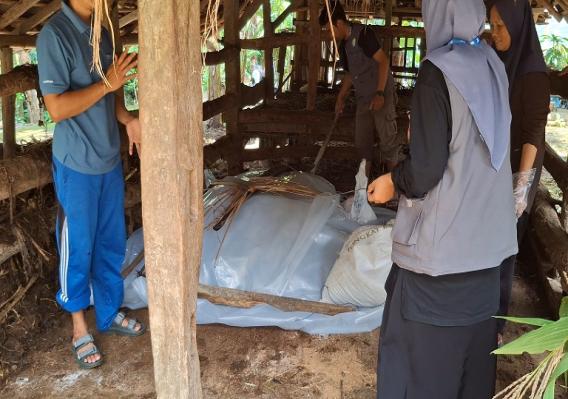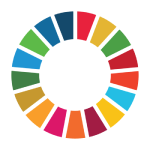Realising the SDGs from the Village: UNY Students Process Livestock Waste into Environmentally Friendly Fertiliser

In an effort to create sustainable agriculture while maintaining environmental cleanliness, a workshop on fermenting livestock waste into organic fertiliser was held by the KKNM 24036 UNY team in Kampung Kajor Kulon, Selopamioro, Imogiri, Bantul. The activity featured a knowledgeable speaker, Abdul Rohman, an alumnus of the Integrated Organic Manure/Management (IOM) training who has applied organic fertiliser fermentation technology from cow manure since 2010.
In his presentation, Abdul Rohman emphasised the importance of managing livestock waste wisely so it does not become a source of pollution. “Cow manure is actually not rubbish, but a resource. If processed correctly through fermentation, the result can be a high-value organic fertiliser that enriches the soil while protecting the environment,” he said, on Thursday (6/11/25).
According to him, the nitrogen, phosphorus and potassium content in livestock waste can enrich soil nutrients. However, without proper treatment, those substances can actually contaminate water and air. For that reason, the fermentation process is an appropriate solution: environmentally friendly, economically valuable, and easy for rural communities to implement.
In the practical session, participants were invited to make organic fertiliser from dry cow manure mixed with rice bran, dolomite, molasses, and microbial activator (EM4). The mixture was then sprayed and tightly covered with UV-plastic for three weeks until it produced a solid, odor-free fertiliser rich in nutrients. The simple process excited participants because it can be directly applied at their homes or farmland.
“Besides reducing odour and waste around the cattle barn, the fermentation result also increases beneficial microbes like Bacillus and Lactobacillus that accelerate soil fertility,” added Abdul Rohman. He also shared his success story of utilising organic fertiliser from fermentation to improve crop productivity and cut agricultural production costs in his village.
The workshop was not only focused on technical knowledge transfer, but also on building environmental awareness. Participants were encouraged to understand that processing livestock waste is a real step toward sustainable development. By turning waste into something beneficial, the community contributes to achieving the Sustainable Development Goals (SDGs), particularly SDG 12 (Responsible Consumption and Production) and SDG 15 (Life on Land).
The head of KKNM 24036 UNY Kajor Kulon, Burhanuddin Nur Latif, revealed that the activity is expected to become a spark of citizen innovation in utilising local resources. “Waste fermentation from livestock is not just an environmental solution, but also an economic opportunity for rural communities. We learn from Mr Abdul’s experience that livestock manure can become green gold if processed with knowledge,” he said.
The activity involved all members of the KKNM 24036 UNY team consisting of Muhammad Ikhsan Kurniawan, Raka Sholeh Arif Firmanda, Laila Fitriyani, Arina Fitri Amalana, Fiya Khumairotun Nasifah, Erlina Fatmawati, Hastri Hermala Yukti, and Bunga Pelangi Agustin. Through their cooperation, the workshop became a tangible proof that the spirit of students can bring positive change from the village level — from the cattle barn to a more fertile garden and a more sustainable earth.
The activity received appreciation from the head of Dusun Kajor Kulon, Juari, S.Pd.I, who noted that the UNY students’ programme is very relevant to the community’s needs. “We are very thankful to UNY students who have shared knowledge and direct practice with residents. Programs like this are very useful because they help residents manage livestock waste that had been piling up into something of economic value,” he said.






